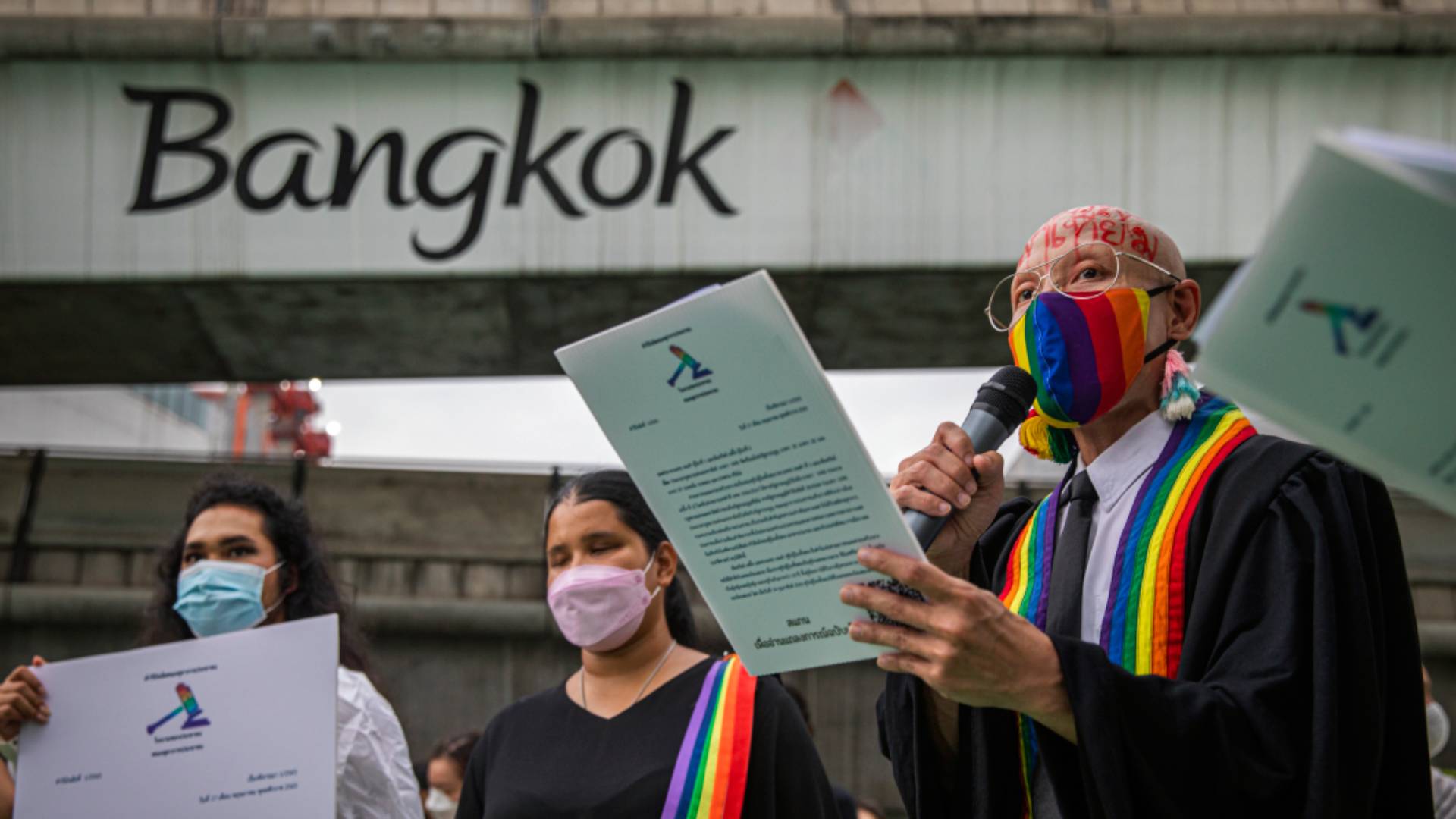Thailand is likely to remain a generally safe and secure environment for LGBTQ+ persons for the foreseeable future.
This assessment was issued to clients of Dragonfly’s Security Intelligence & Analysis Service (SIAS) on 31 May 2022.
An LGTBQ+ rights activist said in March that there has been an ‘increase in understanding regarding LGBTQ+ issues’ in society in recent years. Verbal assaults and harassment are rare, especially in Bangkok. That said, there is some institutional discrimination against LGBTQ+ people in the form of bureaucratic hurdles.
Thailand appears to be one of the most liberal countries in the region when it comes to social attitudes towards LGBTQ+ people. According to a national survey by the UNDP from 2019, most of the population has ‘generally positive attitudes’ towards LGBTQ+ people, with 77% supporting equal rights and access to services. This seems to reflect a growing acceptance in recent years; a similar survey by the ILO noted already in 2014 that social attitudes toward ‘diverse sexual orientations and gender identities have become more tolerant than in the past’.
Sexual harassment and physical violence against LGBTQ+ persons in Thailand do not appear to occur commonly. Most respondents in the UNDP survey classified both types of incidents as ‘rare’ in settings such as work and school. This is in line with comments by our contact in Bangkok, who described violence against LGBTQ+ people as ‘extremely rare’. Still, we suspect that some incidents go unreported. They also told us that people generally tolerate public displays of affection by LGBTQ+ couples, although they noted that such practice is often frowned upon across Thai society regardless of sexual orientation.
That said, there still seems to be some social stigma around LGBTQ+ groups in rural parts of Thailand. Based on our recent conversations with contacts in the country, Bangkok is widely perceived as being more liberal than the countryside. But based on both UNDP and the ILO surveys, discrimination in rural parts of Thailand usually takes the form of LGBTQ+ persons struggling to find work or family members being less supportive towards LGBTQ+ issues, rather than a high risk of physical assault.
The risk of hostility and discrimination appears to be slightly more elevated for transgender people. According to the UNDP survey, transgender people reported higher scores of discrimination in organisational settings than other LGBTQ+ groups. This includes being reminded to ‘watch their appearance’ and experiencing verbal and sexual harassment more frequently, particularly in the case of transgender women.
There is still legal and institutional discrimination against LGBTQ+ people in Thailand. Legislation in place since 2015 prevents discrimination on the basis of gender or sexual orientation. But it does not appear to be enforced in some aspects of society; some local reporting as well as the UNDP survey refer to instances in which employers have advised their employees to ‘play down’ their sexual orientation or to avoid drawing attention to it. The Thai cabinet also rejected a bill recognising same-sex marriages in March suggesting any approval is unlikely in the medium term.
Image: Human rights activists during the International Day Against Homophobia, Transphobia and Biphobia on 17 May 2022 in Bangkok, Thailand; Credits: Lauren DeCicca/Getty Images.



